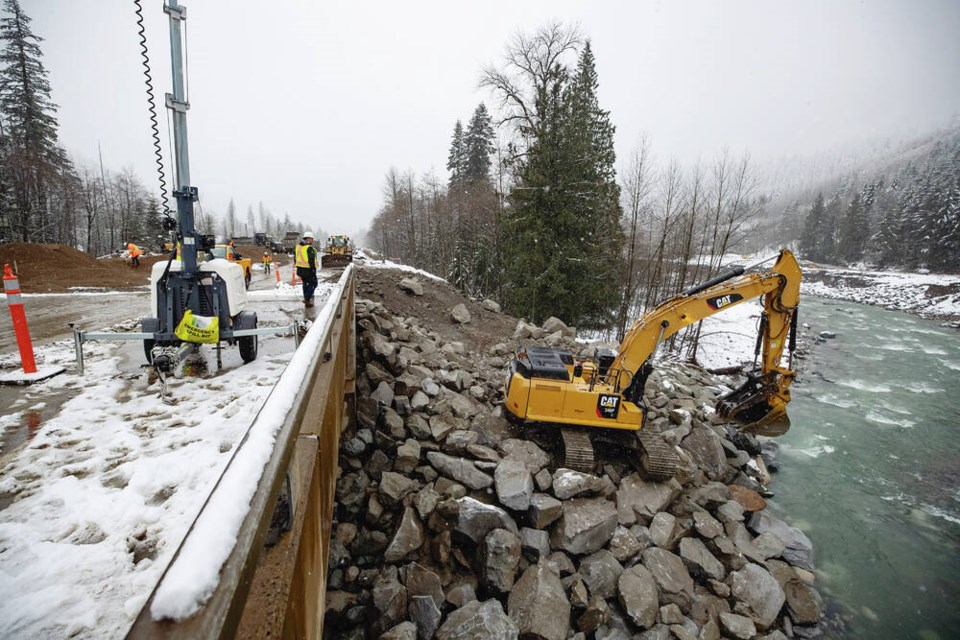The weather may be grey and dull, but Wilson’s Transportation chief executive John Wilson saw a ray of sunshine Monday when the B.C. transportation minister suggested the Coquihalla Highway could be open again during the holiday season.
During a briefing Monday, Rob Fleming told reporters a re-opening date for the highway could be moved up to within the next two weeks instead of early January.
Fleming said round-the-clock rebuilding on the highway, heavily damaged by floods and washouts last month, could mean it opens to commercial traffic before the end of this year.
“We would like the highways to re-open and start on our road to recovery, again,” said Wilson. “But this road is a bumpy road, I tell you.”
The Coquihalla, the main trucking route between the Lower Mainland and Interior, suffered damage to more than 130 kilometres of road and had five bridges wash away.
As a result, only commercial traffic, including buses, are allowed to use Highway 3 — the only connection between the Lower Mainland and the Interior.
Fleming noted about 3,000 trucks each day typically use that route.
Wilson’s had a number of its buses trapped on either side of washouts. Its links include Victoria, Vancouver and Vancouver airport,Victoria, Tofino and other Island communities, Vancouver and Whistler, and Kelowna and Kamloops.
“Just when we think things are rolling again, the good Lord comes in and blows out our highways and basically traps our buses behind enemy lines,” said Wilson, with a resigned laugh. “That week sucked.”
Wilson’s Transportation, like most of North America’s bus lines, lost 95 per cent of its business during the pandemic, and earlier this year received grants to maintain essential services.
Wilson’s had considered permanently cutting some of its 10 inter-city routes, before the grants were made available.
While things had started to improve this year, the heavy rains cut off a big chunk of Wilson’s revenue.
The company has a contract with B.C. Hockey to ferry AAA hockey players between cities in the Interior, Lower Mainland and Vancouver Island.
“It’s a big part of our revenue in the fall and winter,” said Wilson, noting they are down about 75 per cent due to the highway closures and B.C. Hockey’s forced decision to cut the province in half and keep Interior teams playing in the Interior and the Lower Mainland and Island playing against each other.
Wilson noted there has been some increase in inter-city bus transportation use as people see it as the only option to visit family during the holidays given they can’t drive to the Interior and there are a limited number of flights available and they come with high prices.
Scheduled bus service between cities has been deemed an essential service by the province, allowing buses to use Highway 3.
“It’s a little bit of an uptick, but it’s still not what it was five or 10 years ago,” he said.
Wilson said he hopes this sheds some light on the need to re-establish a strong inter-city bus network across the country, and for a federal government subsidy to make it a reality so that remote communities have bus service.
Wilson said without subsidies the remote community routes will disappear and the country will be held to ransom by high airline prices.



